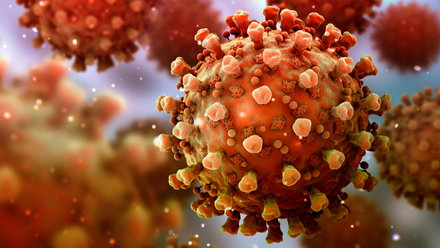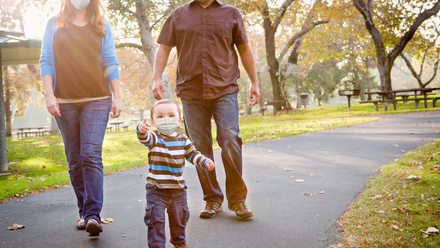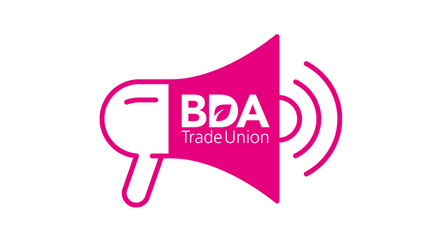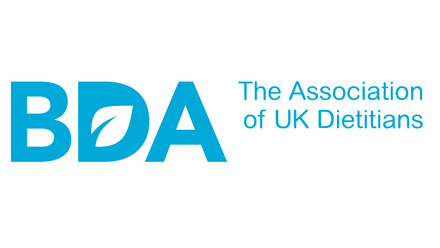Thushara Dassanayake pays tribute to how members of the Imperial Renal Dietetic team jumped in at the deep end to become Dialysis Buddies during the height of the COVID-19 pandemic.
Renal dietitians at Imperial College Healthcare manage the dietetic care of people with Stage 3-5 Chronic Kidney Disease across North West London, which includes the dietetic care of nine renal satellite dialysis units.
Responding to the call for help
Mirroring the countrywide picture during the months of March and April this year, a number of those dialysis units came under significant strain due to COVID-19, including increased need for dialysis machines and staffing shortages. The renal dietetic team responded to this call for help by forming a ‘dialysis buddy’ team to join student doctors and other volunteers to help out at their local dialysis units, and an in-patient dietetic team to strategically manage the heavy in-patient caseload.
Quickly, the dialysis buddy dietitians found themselves in the familiar surroundings of their dialysis units, but doing very unfamiliar things. Starting at 7am, they would conduct patient temperature checks at the door, organise masks and call and coordinate people to their stations. During change-over, they would wipe down chairs and dialysis machines; help to restock dialysis fluids and plastic; line and prime dialysis machines; and assist with setting up aseptic trolleys for taking people on and off the machines. They were also able to help with the monthly bloods collection process and use skills of screening biochemistry in the context of assessing fluid and nutritional status and applying this to discuss dialysis needs, adequacies and priorities with the dialysis MDT.
The job was certainly out of any dietetic comfort zones and the team experienced stresses related to changes in working hours trying to cover dietetic needs of patients on the units while also doing buddy work, as well as sheer exhaustion. However, without exception, all the dietitians greatly enjoyed their time on the units and found it highly rewarding.
Dietitians found themselves more closely involved in their patients’ care, at a time where patient and staff anxiety was high. As buddies, they were able to see, experience and share the stresses of coping with life and work on dialysis during a crisis and this daily dietitian presence on the units enabled a much closer, personal dietitian-patient and dietitian-colleague relationship. As such, dietitians felt more valued and wanted by the patients, nursing and medical staff alike. Such shared experiences certainly create a camaraderie and sense of connectedness and integration that will likely last long beyond the COVID-19 virus, so much so that some of the team even felt a little sad to return to the day job!
As a wider department, we are channelling the experiences of such hybrid roles into reflection and learning to plan and prepare for future surges.
As dialysis buddies, the dietetic team exemplified extending dietetic scope to increase value, trust and more integrated MDT working; and while doing so demonstrated extraordinary resilience, incredible flexibility and admirable commitment during unprecedented times.
Anri Horne, band 6 renal dietitian
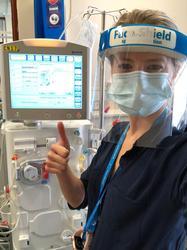
“I had mixed feelings about being redeployed to a satellite unit. Moving away from your usual role into unknown territory is bound to cause some anxiety under any circumstances, but in the midst of a viral pandemic it’s downright scary. On the other hand, knowing that you have the background to make a difference to the quality of health care given in the midst of a viral pandemic is downright wonderful!
“I used to feel like an outsider working on a dialysis unit as a dietitian. I had all the dietetic knowledge I needed to review and advise a dialysis patient on dietary-specific issues, but as soon as the machine started alarming or a patient requested something outside of my scope of practice, I’d be lost. Learning to do small tasks such as unpacking sterile packs, lining and priming dialysis machines, knowing which dialysers and dialysates to attach and getting the right equipment out once patients are ready to be taken off has not only taught me new skills, but has given me to confidence to work and act as if I belong on the unit and help wherever I can.”
Stella Kourtellidou, band 7 renal dietitian
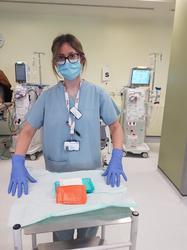
“It is rewarding to have extended my practice skills while also knowing that I can support my renal colleagues during these unprecedented times.”
Sophi Buddo, band 7 renal dietitian
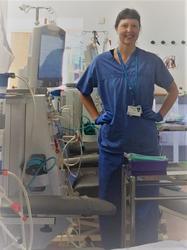
“For me, redeployment has been a completely positive experience. Working here on a daily basis has given me a unique chance to learn about all of the moving parts and dynamics of a dialysis unit e.g. how to set up a machine, what dialysate is needed for what patient, what it means when the machine is beeping and which patients like their tea black or white, with sugar or without.
“The staff have been wonderfully supportive and I now feel like a ‘Jack of many trades’. I have seen that every small thing that you do can help ease the load for the dialysis nurses, cleaners, HCAs and ward administrators and doctors who have been working tirelessly.”
Ruth Kander, band 7 renal dietitian
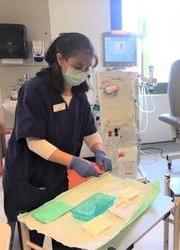
“I was redeployed to help on the dialysis unit in early April after being unwell myself with COVID-19.
“Overall I had a really positive experience I enjoyed learning new skills, chatting to patients and nurses. I also enjoyed getting to know and working with the voluntary staff on the unit.”
With special thanks to the in-patient renal dietetic team: Claire Ahmad, Tina Dilloway, Elena Tsompanaki who so splendidly rose to the challenge of holding renal dietetics together through immensely challenging times and consultant Damien Ashby for his encouragement and support.


